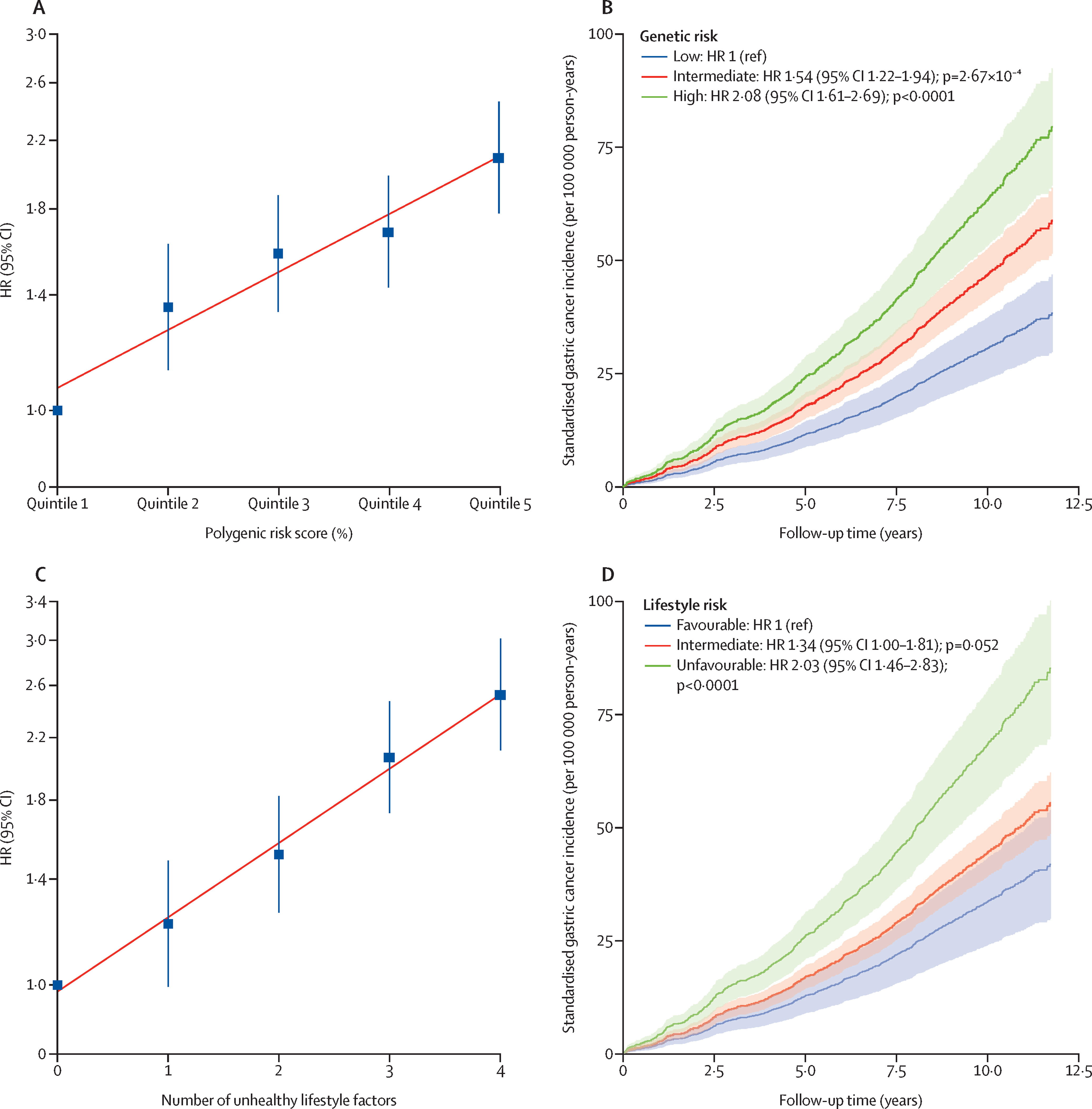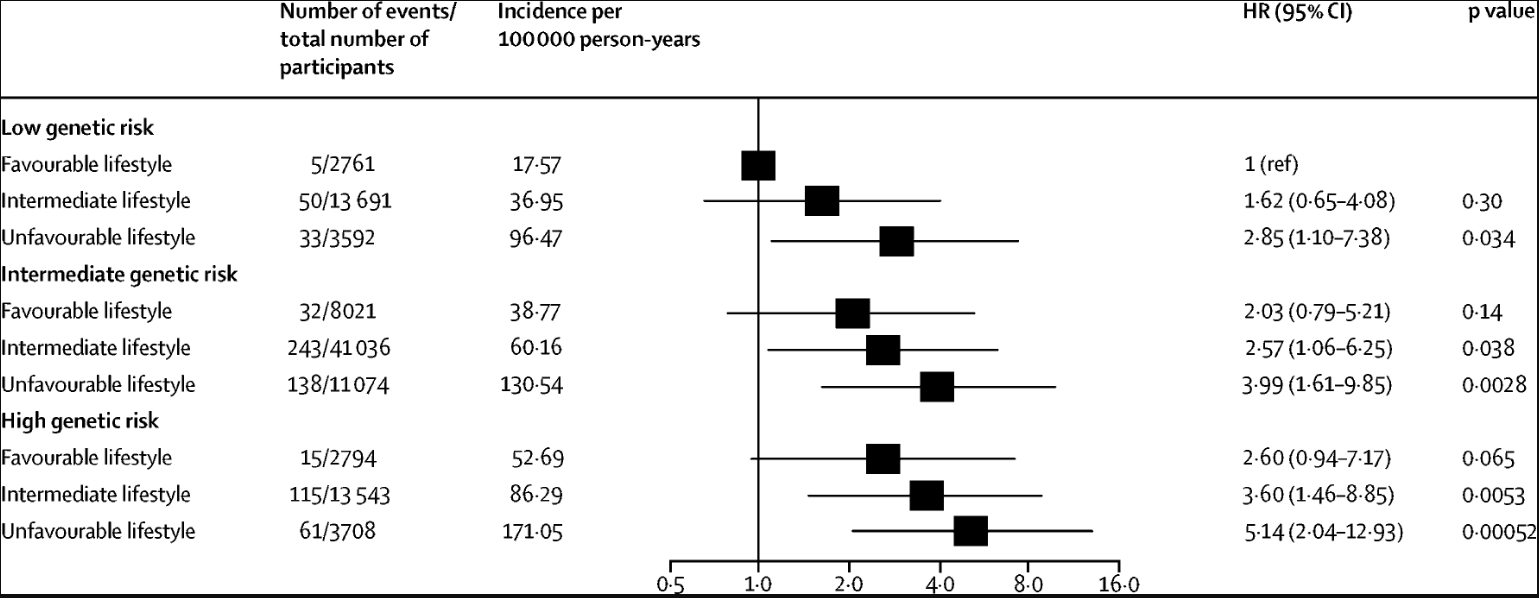Genetic risk, incident gastric cancer, and healthy lifestyle: a meta-analysis of genome-wide association studies and prospective cohort study: A review
Published:
This post is a review on a paper published in Lancet Oncology that discusses PRS applied to gastric cancer.
This paper examines the association of genetic risk with gastric cancer, and the association between lifestyle factors and gastric cancer risk. It then evaluates the impact of combined lifestyle and genetic factors on gastric cancer risk.
Overall, this paper concludes that PRS are effective for identifying gastric cancer risk, and that lifestyle modification can substantially reduce risk of gastric cancer.
Methods
This paper uses two datasets: 1) GWAS studies of Han Chinese populations in china, with approximately 10,000 cases and 10,000 controls. 2) The China Kadoorie Biobank, which includes approximately 100,000 individuals.
Using the first dataset, the team developed 5 PRS for gastric cancer. For each, they chose SNPs that were significantly associated with gastric cancer with p value equal to 5×10−4, 5×10−5, 5×10−6, 5×10−7, and 5×10−8. The PRS adjusted for age, sex, type of residential area (urban or rural), and the first ten principal components of ancestry. They controlled for LD, quality control, just as our dataset does.
Then, the team applied these PRS to the second dataset. They compared PRS across quintiles and evaluated the impact of lifestyle on gastric cancer risk. For lifestyle, they examined the following traits available in the EHR: No current smoking, no current alcohol, low consumption of preserved foods, and frequent intake of fresh fruit and vegetables.
Results
For their 5 PRS with increasing strength in SNP association, they found 539, 112, 38, 18, and 12 SNPs, respectively. When applied to the second database, the PRS had the following results. p value = 5x10-5 was the most significant, although there was little difference between 4 of the 5 PRS.

When this PRS was applied to the dataset, it resulted in the following gastric cancer risk across quintiles. They also repeated this for lifestyle factors.

They then combined risk across PRS and lifestyle factors:

Discussion:
This paper is one of the first to provide evidence that a polygenic risk score can be used to predict the genetic risk of gastric cancer in Chinese populations.
Furthermore, this paper demonstrates that a healthy lifestyle could reduce gastric cancer risk across each level of genetic risk. Individuals with high genetic risk who adopted a healthy lifestyle could effectively negate their increased risk from genetic factors.
